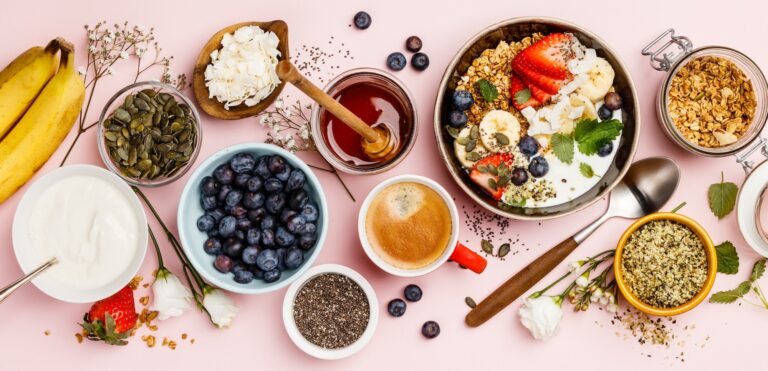- 107 S Central Ave Landis, NC 28088
- (704) 855-2101
- troyermedicalmanager1@gmail.com

Healthy eating habits are essential to living a longer and healthier life. You can reduce your risk of developing heart disease, diabetes and other complications by eating right and incorporating healthy foods into your daily diet.
Flavonoids and other naturally occurring chemical compounds are what plants have to offer. These compounds are basically information that speaks to your genetics and it’s been determined that certain foods may contain substances that can turn on anti-inflammatory genes. When you incorporate these foods into your diet, they can help you avoid having to take expensive medications, deal with their side effects, and reduce further complications in your body.
Food as medicine is not a new idea, and in the past it was one of the only options before we had drugs. Food may be able to help with some of your everyday problems, although there are certain conditions that cannot be treated with dietary changes alone.
It’s difficult to go wrong with the following “prescriptions”, which are healthy foods that should be part of a balanced diet. Talk to your doctor if you have a persistent problem with any of the following, as they will be able to diagnose the problem and recommend the best solutions.
Try: Tart cherry juice. The development of crystals is caused by an increase in uric acid levels. These crystals can build up in the joints and tissues of the body and cause inflammation and pain. A small 2019 study of overweight individuals found that drinking one cup of tart cherry juice every day for four weeks decreased blood levels of C-reactive protein and uric acid (a marker of inflammation) by nearly 20%. The tart cherry juice contains a similar molecule to allopurinol which is used for gout treatment. It is best to get 100 percent juice and not sweetened! On top of this, raw cherries can also be helpful in reducing the chance of gout flaring up in your system.
Avoid the following: Alcohol, fatty meats, and sugary beverages can all contribute to gout.
Try: Chia seeds, raspberries, and artichokes. These are the best sources for the fiber insoluble, which helps to move stool through the gut. A cup of raspberries can be used as a tasty snack, adding marinated artichoke hearts into your salad, or try using chia seeds in your fruit smoothie. Dry fruits such as prunes or apricots can often be helpful for chronic constipation due to the fact they have a lot of insoluble fiber and other chemical components which have their own laxative qualities. If you plan on increasing your fiber intake, we recommend that you make sure to consume ample amounts of water!
Avoiding the following: Eliminate fatty meat, refined carbs, and dairy from your diet if possible! These may be poorly affecting your intake of nutrient-dense, high-fiber foods.
Try: Oatmeal and kiwifruit. There is evidence to suggest that eating complex carbohydrates before bed can help induce sleep by increasing your serotonin levels.
Serotonin is also a key ingredient in Kiwis. This may explain why those who consumed two kiwis before bed, fell asleep more easily. Folate, a B-vitamin, is also abundant in kiwis. Low folate levels have been associated with insomnia. It’s also been shown that eating a Mediterranean-style diet that is rich in fruits, vegetables and lean proteins has been shown to correlate with better sleep quality.
Avoiding the following: Consuming caffeine close to bedtime can make you stare at the ceiling, particularly if it is in the later evenings. Drinking alcohol in the middle or late night can also effectively disrupt sleep. Heavy meals close to bedtime can cause an upset stomach, acid reflux, or heartburn, which can also keep you up at night.
Try: Pumpkin seeds. These green seeds are also known as Pepitas. They contain compounds known as sterols and are believed to help with urination problems associated with benign prostatic hyperplasia, which is a condition in which the prostate gland grows larger. A 2014 study found that men who consumed the equivalent of 2 tablespoons of pumpkin seeds per day experienced greater relief from prostate symptoms than those who took either a placebo or pumpkin extract capsules.
Avoid the following: High-fat diets and excessive consumption of red meat can increase BPH risk. The urge to urinate may also be triggered by caffeine and alcohol.
Try: Salmon and tuna, trout, and sardines. These cold-water fish are high in eicosapentaenoic (EPA) , an omega-3 fatty acid — well-known for its neuroprotective and anti-inflammatory benefits. A 2019 study showed that omega-3s (up to 1,000 mg per day), particularly those that are high in EPA, can help improve depression. A 3-ounce serving size of herring has approximately 770 mg of EPA. 3 ounces salmon contains 590 mg, while 3 ounces rainbow trout has 400 mg. You should aim to eat at least 2 servings of fish per week.
Avoid the following: A diet high in processed foods and refined foods, as well as a lack of fiber rich and nutrient dense vegetables can cause gut problems. Research has shown that the gut is connected to the brain via a mini-nerve system and can send signals that the brain receives when there are digestive problems. This could trigger or worsen anxiety and depression.
If you’ve got further dietary questions relating to your personal health or which healthy foods may be right for your diet, we’d love to hear from you! Don’t hesitate to contact us today for more information or to schedule a visit regarding weight loss and your overall wellness.

Explore